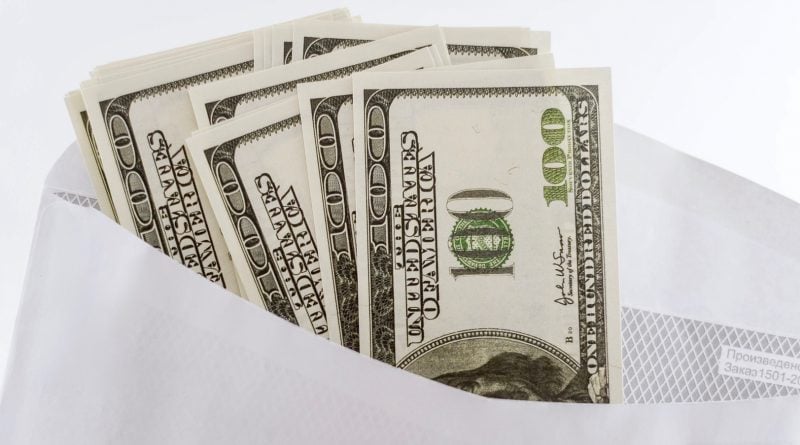Kazakhstan: minimum bribe in 2020 was $ 2.3
Due to the pandemic that triggered the crisis, the minimum bribe in Kazakhstan was $ 2.3. Olga Shiyan, executive director of the public fund “Transparency Kazakhstan”, announced this.
“The minimum cost of a corruption transaction in 2020 was $ 2.3, and the maximum was $ 813. In comparison with 2019, we observe a decrease in the amount of bribe, but the respondents made this conditional on the fact that the bribe-givers were lenient, but rather to the fact that the crisis and negotiation was possible for smaller amounts,” the head of the fund said at the presentation of the research “Monitoring state of corruption in Kazakhstan during 2020”.
According to Olga Shiyan, about 200 field sociologists and 12 analysts were involved in the study, who conducted a survey in three cities of republican significance, 14 regional and 143 district centers throughout the country.
According to the results of the survey, the share of people, who faced corruption when contacting state bodies, was 11.3%, which is 2.1% lower than in 2019.
“Most often the respondents were faced with the need to resolve issues informally in Zhambyl, Atyrau, Almaty, Karaganda, Kyzylorda, West Kazakhstan regions. Among 20 tested institutions, within the walls of which informal cases were occurred, the following were named: state polyclinics and hospitals, the police, land relations departments, public service centers, state kindergartens, state universities. These 6 institutions were related to two thirds of all reported cases of corrupt interaction between citizens and government agencies,” the head of the fund said.
She also noted that the main reason for giving bribes was to speed up the process of resolving the issue and receive services that couldn’t be obtained officially for some reason.
“Most often, the initiators of informal solution of issues were officials (43.9%). In comparison with 2019, the link to the initiative on the part of mediators has noticeably increased: if a year ago they participated in 18.1% of cases, then in 2020 it was already 24.4% of cases. Thus, over the year, the share of mediators in corrupt transactions increased by 6%, which was associated with the uncertainty and lack of intelligible explanations from the authorities during the quarantine period,” Shiyan explained. “Most often, agreements on an informal solution to the issue were concluded with experts (40.3%), deputy managers (17%) and specialists (17.7%). In 71.3% of cases, the corruption transaction among the respondents from the population was concluded on the basis of a financial calculation; the average payment was $ 100. The minimum payment has increased from $ 1.16 to $ 2.3, the maximum amount has decreased from $ 1160 to $ 813. In 2020, in comparison with 2019, the second most common type of transaction was reciprocal services (12.3%).
As part of the study, the public fund “Transparency Kazakhstan” also composed the top 10 reasons for giving a bribe: receiving treatment or referrals for treatment; employment; placing a child in a kindergarten; solution of the land issue; obtaining a certificate from the public service center; passing session at universities; legalization and registration of a land plot; resolution of disputes about road accidents; obtaining a quota for treatment and other issues.




